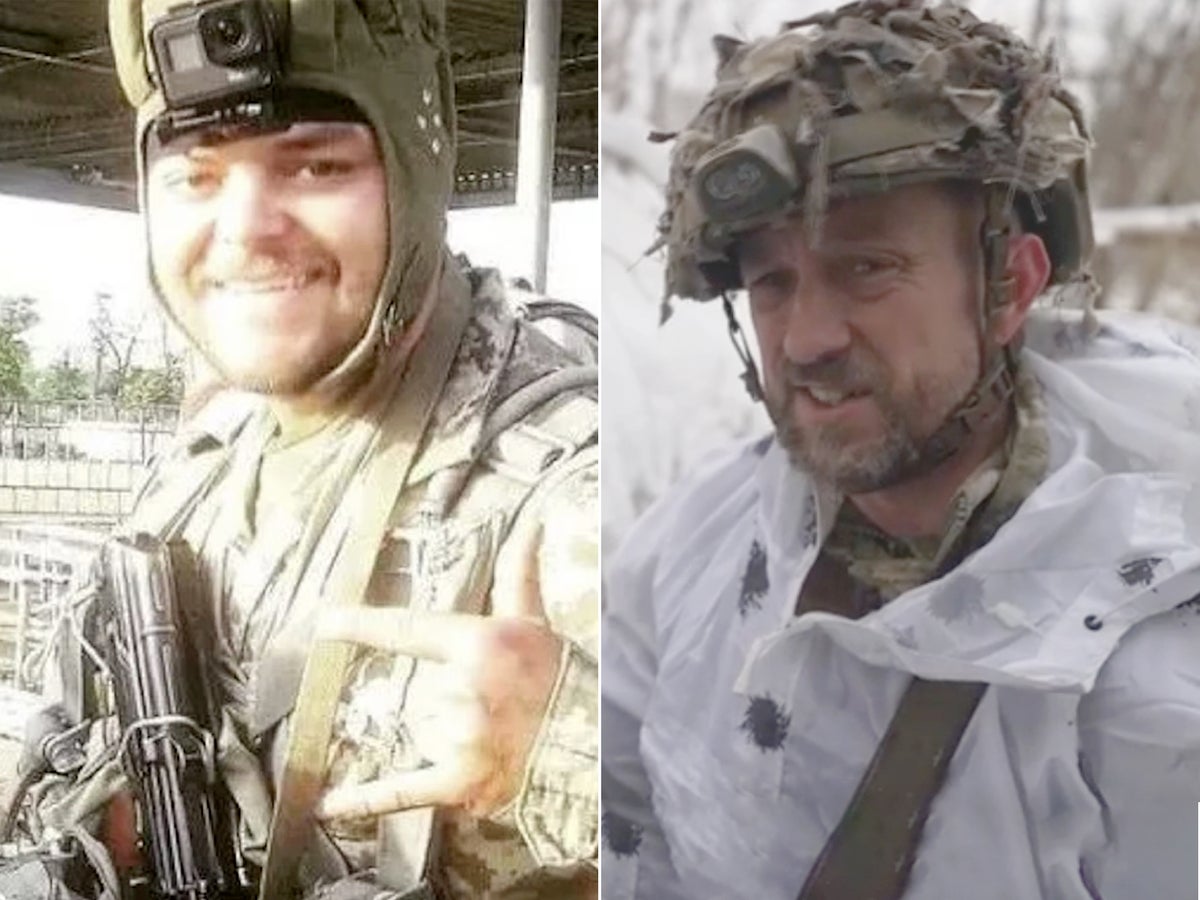
Liz Truss has condemned the death sentence passed on two Britons as “an egregious breach of the Geneva Convention” as she held talks with her Ukrainian counterpart in a bid to secure their release.
The foreign secretary reaffirmed Britain’s support for Kyiv against “Putin’s barbaric invasion” after talking to Dmytro Kuleba over the case of Aiden Aslin and Shaun Pinner who were convicted by pro-Russian separatists in what has widely been dismissed as a show trial.
Earlier, Boris Johnson condemned the “sham” convictions and said he was “appalled” at the sentencing.
“We completely condemn the sham sentencing of these men to death. There’s no justification at all for this breach of the protection they’re entitled to,” said Mr Johnson’s official spokesperson.
However, No 10 declined to say whether the Russian ambassador to the UK, Andrei Kelin, would be summoned to the Foreign Office over the issue, or whether representations would be made to the Kremlin.
Ukraine’s ambassador to the UK, Vadym Prystaiko, believes the two Britons, who he said were targeted for the UK’s support of Kyiv’s resistance against Vladimir Putin, will be released in exchange for prisoners held by Ukrainian forces.
Mr Prystaiko told BBC News: “It will be a swap. The important question is what will be the price for this, because the Russians were talking about some Ukrainian MPs being swapped for them, especially for those who, I now understand, were working for them for all these years.”
Mr Johnson’s spokesperson said No 10 does not have “regular interaction with the Russians”, stressing that the government’s priority is working with Ukrainian counterparts to “ensure their release as quickly as possible”.
The spokesperson added: “They’re afforded protection under the Geneva Convention as members of the Ukrainian armed forces, which is why we want to continue working with them closely to try and get them freed as quickly as we can.”
There are concerns in the Foreign Office that making their case a bilateral issue between the UK and Russia would assist Moscow in its narrative that the men are “mercenaries” and therefore not entitled to protection under international law.
Britain argues that Mr Aslin, who is from Nottinghamshire, and Mr Pinner, from Bedfordshire, are members of the Ukrainian army and should therefore be treated as prisoners of war.
Russian foreign minister Sergey Lavrov declined to comment on the case, saying: “Currently they are guided by the laws of the Donetsk People’s Republic.”







